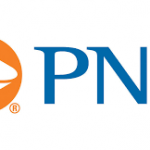A few weeks ago I wrote an article on the basics of testing of documents for audits of 401(k) Plans.
This time, I will write a brief essay so to say, on the actual audit of 401(k) financial statements.
The first thing to remember is what is encompassed in the engagement letter. The part that I am referring to is that “the financial statements are the responsibility of management.” The job of the auditor is to ensure that these numbers are correct in all material respects.
One of the most basic things that an auditor does is to have substantiation of the financial statement numbers the administrator gives you. This substantiation should be saved on your hard-drive and a hard-copy in your work papers. It is your “proof” of the financial statement number being correct. Sampling and/or testing of documents gives the auditor some assurance that adequate controls are in place for loans, benefit payment and contributions and employer match if applicable.
It is common to discover discrepancies between the numbers the administrator prepares and the numbers you come with after the audit. The questions arises – “What do you the auditor do?” Hopefully these discrepancies are immaterial and won’t cause too much of a change to the financial statement numbers.
One of the responsibilities of the auditor is to point out any discrepancies to the administrator by showing proof of this discrepancy. The auditor should not make changes to the financials on his/her own, but point them out to the administrator. Remember, the financial statements are the responsibility of management and is prepared by management, the management company- or the administrator.
There are times where the discrepancy in numbers might cause tension between the auditor and management company and/or administrator. If this occurs, the auditor should once again point this out with proof after substantiation. The auditor may have to “insist” on these changes by persuasion either nicely or not if the situation arises. If the administrator refuses, the auditor should not sign the audit!
All of this sounds easy and simple and the vast majority of the time, this differences are resolved.
I would like to point out that years ago in a CPA firm that I worked at, some of the 410(k) Plan Administrators were materially off on their numbers and it was a problem getting them to change them. It helps if the administrators are competent.
If you are interested in having an auditor like myself gives an accountant’s report/opinion on your Plan, my cell number is 347-598-8298. I am good and my fees are reasonable. I can also provide a lot of references.







